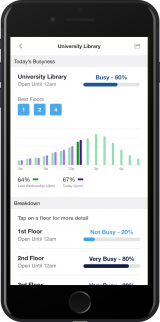
“I’m currently working on my technical paper for the winter semester and I’m having trouble deciding on a topic for the paper. Are you the right person to talk to about this?” I have received this kind of question many times over the past few years. Finding a topic can be tricky! Here are some of my favourite ways that you can use to decide on an engineering topic to research for a course. Whether it’s for WCOM 206, CIVE 432, CIVE 664, MECH 532 or any other engineering course, hopefully some of these tips can help you hone in on a topic that will work well for you!
- Look up research areas of some of the professors in your department. Every engineering department has a list of professors and you’ll find links to their research areas from those lists. For example, here is the list of Civil Engineering professors: https://www.mcgill.ca/civil/people and if you click on any of their names, you will often see their research areas and/or a list of their publications.
- To get an idea of what other WCOM 206 students have done before, check out papers that have won the best paper contest here. They will give you ideas for how narrow a topic a good paper should have and possibly point you to topics of interest.
- I often get inspiration from this magazine on engineering education called Prism. Each issue has a section called “First look” where they talk about cool new engineering technologies.
- Engineering grand challenges. This is a list put together by the US National Academy of Engineering. There are lots of excellent ideas for research that is really needed in today’s world: http://www.engineeringchallenges.org/challenges.aspx.
- Canadian engineering grand challenges https://engineeringdeans.ca/en/project/cegc/ – these grand challenges are designed to help address the UN Sustainable Development Goals (SDGs).
- The Royal Academy of Engineering, the UK’s National Academy of Engineering, has put together a website on how engineering is addressing the UN Sustainable Development Goals https://raeng.org.uk/sdgs. There is a wealth of great research topics on those pages.
- It’s always good to pick a topic that you have a personal interest in. Have you done an internship already? If so, you could pick something related to that. If you haven’t done an internship yet, that’s okay. You can check out the kinds of internships that are available to McGill students and pick a topic related to one that sounds interesting to you. You’ll find internship opportunities for McGill students in MyFuture here. Similarly, even if you’re not ready to look for a job yet, you can look in MyFuture for jobs of interest. The kind of work that employers are hiring for could give you ideas for research topics you might want to learn more about.
- If there is a broad area of research you are interested in, you could skim a book on the topic, especially looking in the chapter headings to see if any of the narrower topics covered in the book interest you. You can find books on a topic by searching words in the library catalogue here and narrowing the results to books only.
- Similarly, if there is a broad area of research that interests you, you can search the topic in Compendex here. It’s normal that you will get thousands of results. Next, use the “Refine” limits on the left-hand side of the screen to select “Controlled vocabulary” à “View more”. A pop-up window will open with all the “tags” that have been assigned to the articles in the results list. As a way of narrowing your topic, check out what the tags are and select one or more that interest you.
- Check out past blog posts on this blog, the Turret! There are even some past student assignments posted that might give you some ideas.
I hope these suggestions will help you. If you have other ideas for ways of coming up with a research topic, I would love to hear about it! You can contact me at taradotmawhinneyatmcgilldotca .
If, after reading this, you could still use some guidance, please know that the engineering librarians at Schulich Library are always happy to meet with you for a research consultation where we can discuss with you further. You’ll find the engineering librarian for your department listed at: https://www.mcgill.ca/library/contact/askus/liaison.
Happy researching!
Thanks to WCOM 206 professor Terry Newman for her thoughtful feedback on this blog post.

